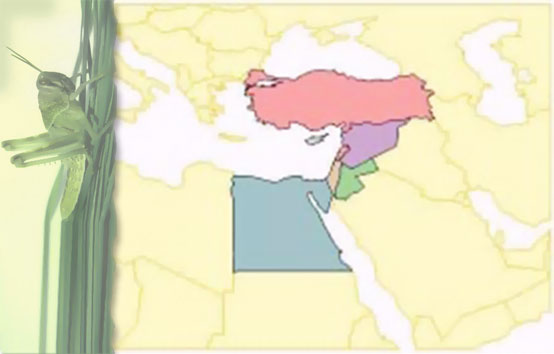Protopulvinaria pyriformis (Cockerell)
Taxonomic placing: Insecta, Hemimetabola, Hemiptera, Sternorrhyncha, Coccoidea, Coccidae.
Common name: Pyriform or heart-shaped scale.
Geographi distribution: In most tropical and subtropical parts of the world, except Australasia.
Host plants: Polyphagous.
Morphology: The flat, almost triangular body of the young female is about 1.5 mm long and bears antennae with 7-8 segments. The anal plates are very elongated, located at mid-body. The shield of ovipositing females is brown, 2.0-4.0 mm long, pear-like (“pyriformis”) with a surrounding fringe of whitish wax.
Life history: The pyriform scale reproduces by parthenogenesis, each female laying up to 300 eggs. The crawlers settle mostly on the lower leaf sides, which results in honeydew dripping on the upper surfaces of lower leaves. Unlike most other Coccidae, the female of P. pyriformis is capable of movement. It completes two annual generations on avocado trees in Israel, the first during May-June, the other in mid-winter. The number of annual generations is host-plant dependent, because on ivy (Hedera helix L.) the pest raised three generations. In the laboratory the pyriform scale can be mass-reared on ivy.
Economic importance: Damage to avocado (and other plants) is due to secreting vast amounts of honeydew that is colonized by sootymold fungi that cover fruits and leaves by a thick black mass. As a result leaves drop, fruit may be reduced in quality and quatity, and twigs dry up.
Management
Plant resistance: Pest survival on the avocado cultivar Puerte is rather low, whereas Hass and Nabal are very susceptible.
Chemical control: White oil is recommended to control the susceptible young pest stages, and is to be applied only in late summer or winter. However, as the phenology of the scale may differ on different hosts, their stage distribution should be determined prior to pesticide applications.
Biological control: The introduced endoparasitoids encyrtids Metaphycus stanleyi Compere and Metaphycus helvolus Compere are the most important natural enemies of the pest in Israel. However, their larvae are often encapsulated, reducing their efficacy. Several generalist predatory beetles also prey on the pest.
References
Blumberg, D. and Blumberg, O. 1991. The pyriform scale, Protopulvinaria pyriformis, and its common parasitoid, Metaphycus stanleyi, on avocado and Hedera helix. Alon Ha’Notea 45: 265-269 (in Hebrew).
Blumberg, D., Wysoki, M., and Hadar, D. 1993. Further studies on the encapsulation of eggs of Metaphycus spp. (Hym., Encyrtidae) by the pyriform scale, Protopulvinaria pyriformis (Hom., Coccidae). Entomophaga 38: 7-13.
Wysoki, M. 1987. A bibliography of the pyriform scale, Protopulvinaria pyriformis (Cockerell), 1894 (Homoptera, Coccidae), up to 1986. Phytoparasitica 15: 73-77.
Swirski, E., Wysoki, M. and Izhar, Y. 2002. Subtropical Fruits Pests in Israel. Fruit Board of Israel (in Hebrew with an Engish Summary).
